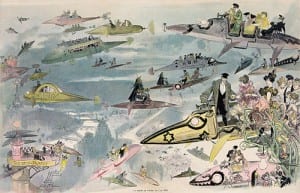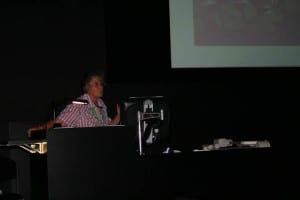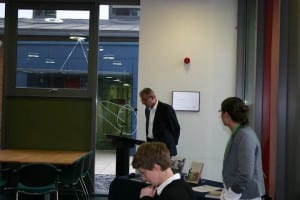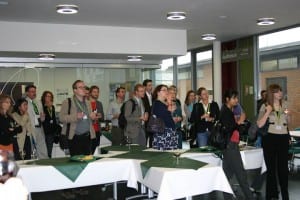In the nineteenth century, railways made distant locations ever more accessible, the Grand Tour became a pastime of the middle classes, and British imperial expansion brought exotic places and non-Western cultures ever closer to home. There was an enormous expansion in museums and popular exhibition culture. Technological innovations such as photography and film, and the growth of a popular press, delivered these experiences, images and objects to an increasingly literate public. This public in turn seemed to possess an insatiable appetite for travel narratives, shows and exhibitions, both fictional and factual.
Our conference aimed to bring together academics working on the stories people told about travel through text, image, and objects, from any discipline. We had delegates from all over the world, including South Africa, New Zealand, the USA, Switzerland and Israel. Papers covered topics such as nineteenth-century ideas about the future of travel (in flying cars, apparently), and the heroic tales told about the laying of submarine telegraph cables. There was coverage of the photographs taken and purchased by British naval officers in Japan, the popularity of rambling among late-nineteenth-century clerks, the development of a national cuisine in Argentina, and New Zealand Maori travellers in Australia and Britain. We also heard how a British woman, on making the first ascent of a mountain in the Dolomites, proceeded to have tea and biscuits on the summit!
Our keynote speakers framed the conference through different disciplinary approaches: Dr Geoff Quilley from Sussex University began the event with a consideration of depictions of the South Pacific in paintings by British and French naval officers in the early 1840s, when there was some rivalry between the two powers over influence in the area. Professor James Buzard from Massachussetts Institute of Technology discussed how nineteenth-century realist novels constructed ‘good’ and ‘bad’ types of travel, and Professor Susan Pearce of Leicester University discussed tourism and souvenir-collecting at the battlefield of Waterloo to argue that objects became more important for understanding travel around 1800. The conference thus drew together many different strands in research on nineteenth-century travel, and opens up a lot of questions for further study.




Recent Comments